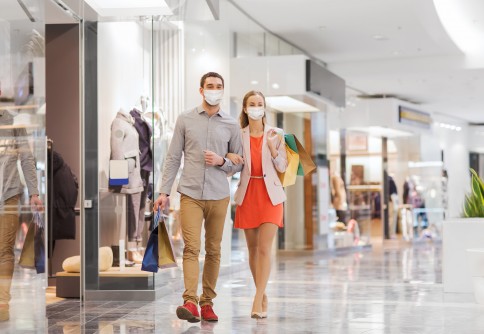In communities where masks were mandated, consumer spending increased by 5% on average, showing that a safety rule can stimulate economic growth as well, according to a new study from the Olin Business School at Washington University in St. Louis.
Researchers found the effect was greatest among non-essential businesses, including those in the retail and entertainment industries — such as restaurants and bars — that were hit hard by the pandemic.
“The findings exceeded our expectations and show that we can have a strong economy with strong, commonsense public-health measures. Mask mandates are a win-win,” said Raphael Thomadsen, professor of marketing and study co-author.
Thomadsen, along with Olin’s Song Yao, Nan Zhao and Chong Bo Wang, analyzed the impact of social distancing and mask mandates on both the spread of COVID-19 and consumer spending. They used cellphone location data to track the degree of social distancing in nearly every county in the U.S. and compared that with community voting patterns, coronavirus infection rates and consumer spending rates.
The researchers found social distancing has a large impact on reducing COVID-19 spread, while the evidence on mask mandates is mixed. But while social distancing reduces consumer spending, mask mandates has the opposite effect. They also found that social distancing decreased in communities with mask mandates, magnifying the positive effect on spending.
“Preventive measures such as social distancing and facial masks should be considered as pro-business,” said Yao, associate professor of marketing. “When people feel safer to spend, or more importantly, when the pandemic is kept at bay, the economy is more likely to have a quick recovery. Not to mention the lives that will be saved.”
Source: Washington University in St. Louis

Be the first to comment on "Study Asserts Mask Mandates Increase Consumer Spending"